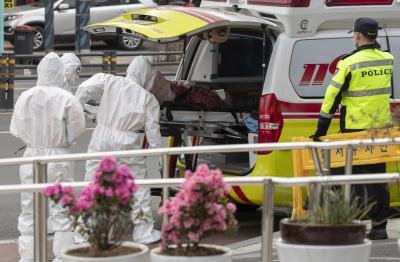Seoul, May 14 (IANS) Some 35,000 people have been tested in connection with the recently detected coronavirus outbreak in clubs in Seoul, which has caused more than 130 infections, sparking fears of a resurgence in cases in South Korea.
A total of 35,000 tests have been conducted in connection with Itaewon clubs, Yoon Tae-ho, a senior Health Ministry official, said in a press briefing on Thursday.
Yoon also said that of the 29 new cases detected on Wednesday in South Korea, 26 correspond to community infections and, of those, 20 were linked to the outbreak believed to have originated in Seoul’s Itaewon neighbourhood, known for its many bars and nightclubs, reports Efe news.
In total, the outbreak has so far led to a total of 131 infections, some of them at the secondary and tertiary levels.
The authorities consider that the many bars in Itaewon were able to act as vectors of the contagion and has asked all those who visited the area between April 24 and May 6 to get themselves tested.
With the help of GPS data from mobile phones and card payments, the authorities have learned that more than 10,000 people had visited the bars in the area at that time.
However, since many of these bars are linked to the LGTBI community, who are discriminated against in South Korea, some 700 people have not yet been localized, as they apparently provided false personal information while entering these establishments, which were required to keep a note of all clients visiting.
The authorities have warned that visitors of these clubs who do not report for testing will face a fine of up to 2 million won (around $1,600).
South Korea, one of the countries that has so far managed to control the coronavirus situation well without resorting to lockdowns, went several days without detection of local transmissions of the COVID-19 virus last week before this new outbreak was detected.
The Asian country has so far recorded a total of 10,991 cases and 260 dead, with a fatality rate of 2.37 per cent.
Only 8.8 per cent of the total cases are currently active, and 88.8 per cent have been cured.
–IANS
ksk/
